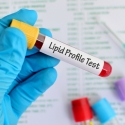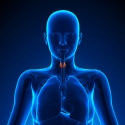Hypothyroidism is a condition of under-functioning of your thyroid gland. Your thyroid is a butterfly-shaped gland located in the front of your neck just below the Adam’s apple. It is responsible for producing thyroid hormone. Thyroid hormone is responsible for regulating your metabolism.
When your thyroid hormone in inadequate or does not work well, you have symptoms typical of hypothyroidism. These symptoms included fatigue, cold hands, and feet, constipation, dry skin, brain fog, hair loss, weight gain, loss of libido or inability to lose weight despite diet and exercise.
Inadequate amount of thyroid hormone is akin to have an eight-cylinder car running with only seven spark plugs working. The car will run but it will run rough. The function of the car will not be optimal. In the same way, if your cells throughout your body do not have adequate amounts of thyroid hormone they will function in a suboptimal manner. You will not feel right. You will have fatigue, dry skin, hair loss and decreased libido. You will have problems with weight gain, constipation, and brain fog. Weight loss will be difficult.
Hypothyroidism affects over 20% - 25% of the US population. That is over 65 million Americans. Most have not been diagnosed. Hypothyroidism affects women seven times more frequently than men. Women tend to have a much higher incidence of genetic thyroid problems along with hormonal imbalance that affects a female’s thyroid function.
A deficiency of thyroid hormones can affect levels of female hormones and cause menstrual abnormalities and loss of libido or sex drive. Hypothyroidism may also impair fertility and cause miscarriages, premature delivery, congenital abnormalities or stillbirth.
The diagnosis of hypothyroidism may be made by performing a complete history and physical. An astute physician will be able to suspect hypothyroidism just by talking to you and performing an appropriate physical examination. Very simple signs of a low thyroid are thinning of the outside aspect of your thyroid hormones. Also, we see a rippling of the edge of the tongue or an enlarged or tender thyroid gland suggestive of thyroid problems
Blood tests are typically ordered to evaluate thyroid function. Often the patient is told their thyroid test are “normal.” The only test that is done is a TSH or thyroid stimulating hormone test. This test actually measures how the pituitary gland in your brain and your thyroid gland are communicating. It only indirectly measures your thyroid function. A complete thyroid assessment requires not only a TSH but a free T4, T3, reverse T3 and thyroid antibodies. These tests put together with your history and physical should allow for a complete an accurate thyroid assessment.
A simple test that anyone can do at home is a basal body temperature test. The basal body temperature is your temperature taken first thing in the morning before you get out of bed. If your metabolism is slow, indicative of low thyroid function, your basal body temperature will also be low, usually before 97.5 degrees taken orally.
At the Wycoff Wellness Center, we take the time to sort out whether or not your thyroid may be part of your health concerns. The components of the Wycoff Wellness Center's thyroid evaluation include:
* Review of a comprehensive history
* Obtain an adequate physical examination
* Obtain a 30-day basal body temperature chart
* Obtain a complete thyroid panel blood tests (TSH, Free T4, Reverse T3, Thyroid antibodies, Total T3 & Reverse T3)
* Provide specific vitamin, mineral and nutrient support to the thyroid gland (iodine, zinc, selenium)
* Initiate bioidentical thyroid hormone replacement (Armour Thyroid or compounded porcine thyroid)
Finding the answer to your thyroid concerns is not difficult, it just takes a little time to obtain the correct information. Find the solution by contacting the Wycoff Wellness Center at 517-333-7270 (800-471-0255).



















